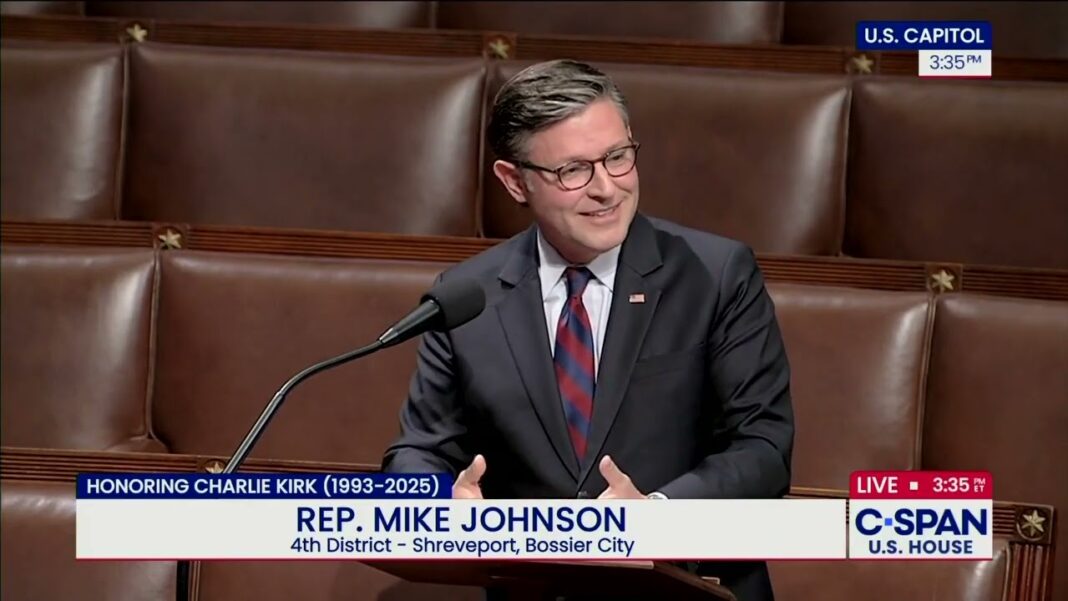The bill would fund the government through Nov. 21. It includes more security funding for members of Congress and the executive branch.
WASHINGTON—The House of Representatives on Sept. 19 passed a bill to fund the government through Nov. 21, avoiding a government shutdown.
One Democrat joined 216 Republicans to pass the measure, sending it to the Senate. The measure needs 60 votes to advance in the upper chamber.
The government runs out of funding on Oct. 1 as the last day of the fiscal year is Sept. 30. The bill, known as a continuing resolution (CR), would fund the government at current levels. It also includes $88 million in security funding for members of Congress, the executive branch, and Supreme Court justices in the wake of the assassination of conservative influencer Charlie Kirk.
Ahead of the vote, at least three House Republicans opposed the short-term government funding bill: Reps. Thomas Massie (R-Ky), Victoria Spartz (R-Ind.), and Marjorie Taylor Greene (R-Ga.).
“This CR would be a copy of the uniparty spending bill under [President Joe] Biden. I didn’t vote for those spending priorities when Biden was President and I won’t vote for them now,” Massie posted on X.
House Speaker Mike Johnson (R-La.) could only afford to lose two Republicans on party-line votes.
Appearing on CNBC’s “Squawk Box” on Sept. 17, Johnson said that Republicans are trying to go through the usual process of funding the government through appropriations, but more time is needed.
“We’re now forcing the mechanism of a conference committee. …When you have the House and the Senate with the same bills that don’t match exactly, you get a subset of people in those areas of jurisdiction who go into a room and work it out; that’s how the system is supposed to work,” he said.
“So, we’re going to do that again. We’re moving forward productively, but the concern is that we’ve run out of [time] to finish that process. We need a short-term, very clean continuing resolution, to keep the government open so our appropriators can continue to do their work.”
Democrats’ Opposition
The Democrats have released a competing continuing resolution that would fund the government through Oct. 31.
That proposal, which has virtually no chance of passing Congress, would extend enhanced Affordable Care Act insurance subsidies that are due to expire at the end of this year, and reverse Medicaid reforms enacted in Trump’s tax-cut-and-spending bill passed over the summer. It would also place limits on the Trump administration’s ability to claw back funding approved by Congress.
Ahead of the vote, Democrats said they would oppose the GOP funding bill.








